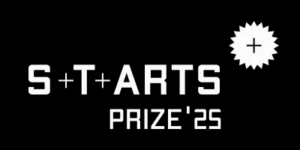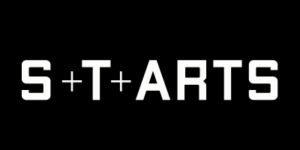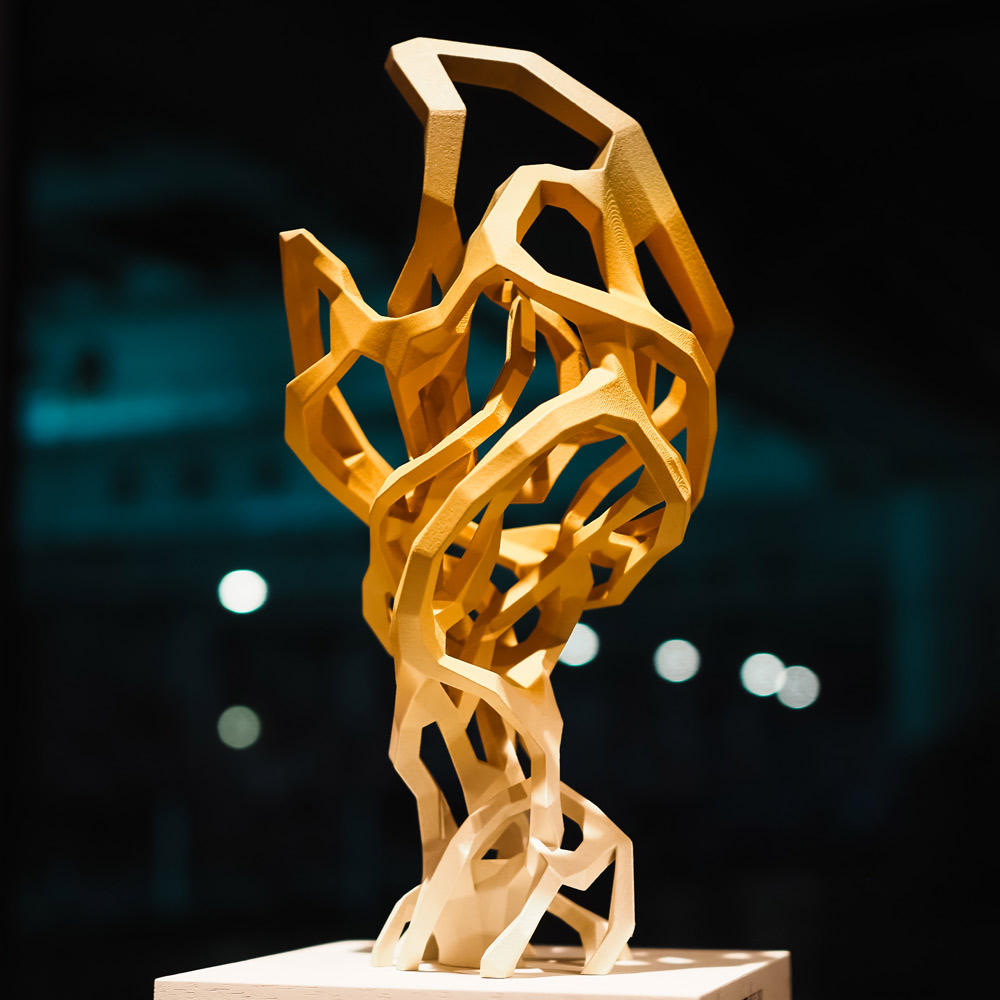
Winners
-
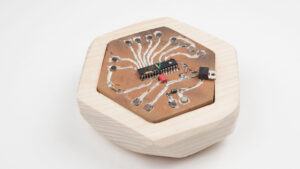
Clay PCB
Patrícia J. Reis (PT/AT), Stefanie Wuschitz (AT)
It is an open secret that the hardware in our smart devices contains not only plastics but also ‘conflict minerals’ such as copper and gold. Technology is not neutral. We investigate alternative hardware from locally sourced materials from a feminist perspective, to develop and speculate upon renewable practices.
-
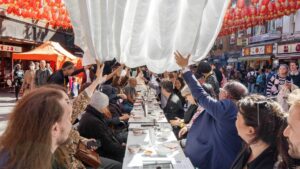
Low Carbon Chinatown
Ling Tan (SG/UK)
Low Carbon Chinatown (LCC) is an interactive urban intervention, participatory platform, and meal-as-performance, founded on AI and data science, addressing the Climate Crisis through the lens of global agri-food systems. Using Asian Chinese diasporic food culture as a starting point, it engages large groups of cross-generational diasporic East and Southeast Asians (ESEA) in the UK…
-

Narrative Futures: Panchatantra Fables meet Personal Primer
Daniel Devatman Hromada (SK), DigiEduBerlin (M)
The concept of human-machine peer learning (HMPL), where a human learns from the machine (e.g. reading, foreign language) at the same time as the machine learns from the human (e.g. speech recognition), is deployed in the book-like artefact ready to narrate wisdom of ancient India.
-

Nishikigoi NFT
Toshi (JP)
Nishikigoi NFT is a project that supports diverse cultures by connecting art and technology with local communities. We work to create a new type of community that uses blockchain technology to preserve the vital local resources that we need to live.
-
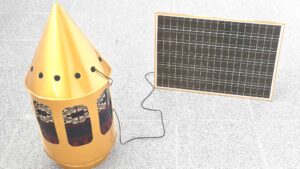
Revolution Refridge
Rojava Center for Democratic Technologies (SY), Dani Ploeger (NL)
‘European-style’ refrigerators can only be operated with a large solar system that costs the equivalent of a year’s income or more. Especially during the extreme summer heat, the absence of adequate cooling systems has detrimental effects on the quality of life. At the same time, many people are not keen to explore alternatives that are…
-
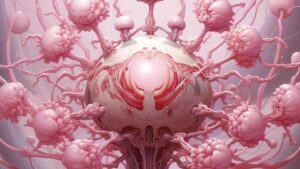
Sentient Clit: the Pussification of BioTech
Jiabao Li (CN), WhiteFeather Hunter (CA)
We investigate the potential of producing lab-grown clitorises by isolating stem cells from menstrual fluid and 3D-bioprinting them into anatomically accurate gel supports (clits) for in vitro growth. We have differentiated the cells into neuronal types to speculate creating clitorises that respond ‘intelligently’ to stimuli through cultured neural networks.
-

Soft Collision
Anna Schaeffner (FR)
Soft Collision (2024) looks at the potential of safe physical interaction by embracing collision rather than avoiding it. Through a deformable, pneumatic membrane that serves as a tangible interface to foster direct manipulation and live programming, making interactions more intuitive and inclusive.
-
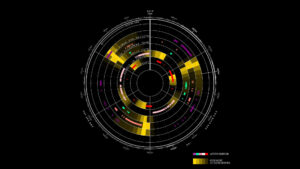
Solar Protocol
Solar Protocol Collective led by Tega Brain, Alex Nathanson, and Benedetta Piantella (M)
Solar Protocol is a planetary-scale network of solar-powered servers, installed and maintained by volunteers around the world. The servers collectively host the Solar Protocol web platform at http://solarprotocol.net/, serving it from whichever server is in the most sunshine and therefore generating the most energy, at the time.
-
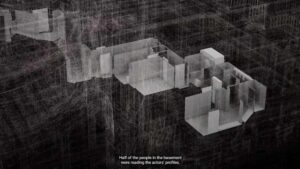
The Russian Airstrike on the Mariupol Drama Theater
The Center for Spatial Technologies
The destruction and subsequent occupation of Mariupol by the Russian Armed Forces have fragmented its communities, leaving most survivors dispersed across different regions of Ukraine and other parts of Europe, and the city beyond reconstruction. This project looks at the bombing of the Mariupol Drama Theater as an emblem of Russia’s strategies of terror. Our…
-
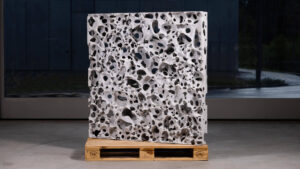
The Urban Biotope
Vasily Sitnikov (RU)
The Urban Biotope project operates on the borderline between human and non-human habitats. The 15 cm thick concrete screens for the building envelope create an interconnected cellular space for various biological species, surrounding the building with a self-sufficient ecosystem. Carefully sized cavities provide a favorable environment for various species of plants, insects, and nesting birds.
-
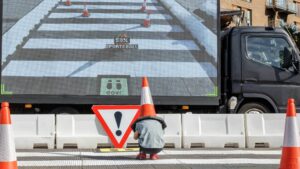
How (not) to get hit by a self-driving car
Tomo Kihara (JP), Daniel Coppen (GB)
How (not) to get hit by a self-driving car is a game installation that challenges people to cross the street without being detected by an AI. In the experience, players see themselves augmented on a large screen at the end of a playing field, simulating the perspective of an AI-powered camera of a self-driving car.…
-
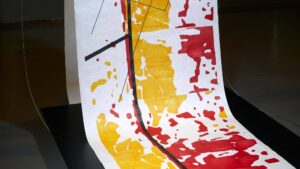
Mapping Uncertain Landscape: The Satellite
Sofia Isupova (UA)
The project explores the relationship between humans and machines, the map maker, and the map, looking closely at the remote-sensing infrastructures, and their problematics as well as questioning maps and mapping processes to detect changes in the landscape that are occurring daily due to the ongoing Russian war in Ukraine. Transforming satellite images into maps…
